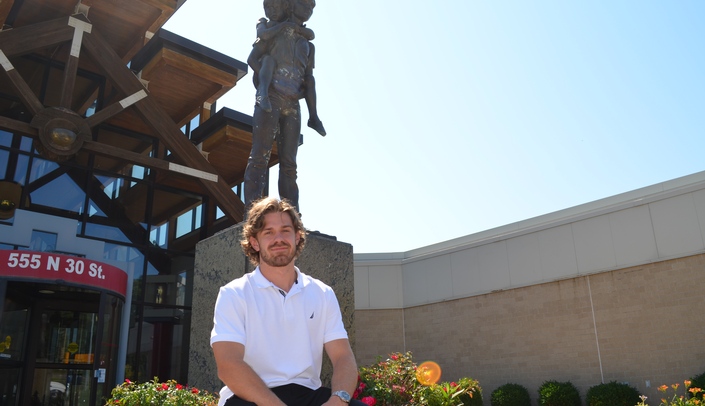The periodic table filled Michael Merical’s notebook when he was a child. Science was intriguing, fun and easily one of his favorite subjects in school.
His interest waned in high school but rebounded after a scheduling mishap when he entered college.
A business major, Merical somehow ended up in a physiology class through a scheduling error and his love of science took off once more.
"Luckily that happened," said Merical, "because it changed my entire college trajectory."
Merical ended up switching majors and is now pursuing a degree in biology at Nebraska Wesleyan University in Lincoln.
Merical’s scientific journey took another intriguing twist this summer when he enrolled in the Nebraska INBRE program through happenchance.
A presentation during a biology course piqued Merical’s interest enough that he decided to apply.
"It opened up a whole new world," Merical said of his 10-week summer research experience.
The pre-med student found himself working with Daniel Rasetshwane, Ph.D., director of the Auditory Signal Processing Laboratory in the Center for Hearing Research at Boys Town National Research Hospital in Omaha, Neb.
There, Merical studied hidden hearing loss in adults brought about by loud noise exposure.
"Hidden hearing loss affects how well a person understands speech when surrounded by background noise, such as in a restaurant or at a party," Merical said.
It’s often found in people who work in industries, where they are consistently exposed to loud noises.
"It’s something I never really thought of until I encountered this research, but it affects more people than you would think," he said.
Merical’s summer research experience has given him pause to consider whether or not he will pursue a M.D./Ph.D.
"I’m thrilled to have had this opportunity and I can see how valuable research is in a clinical setting," he said.
While working with Dr. Rasetshwane, Merical helped gather information on participants who came in to have their hearing screened for hidden hearing loss.
He took part in setting up the tympanogram and audiogram tests, then categorized the data collected to compare normal hearing to hearing loss.
"It’s been a rewarding experience and one that definitely has made me think more about the research aspect of clinical care," Merical said.
